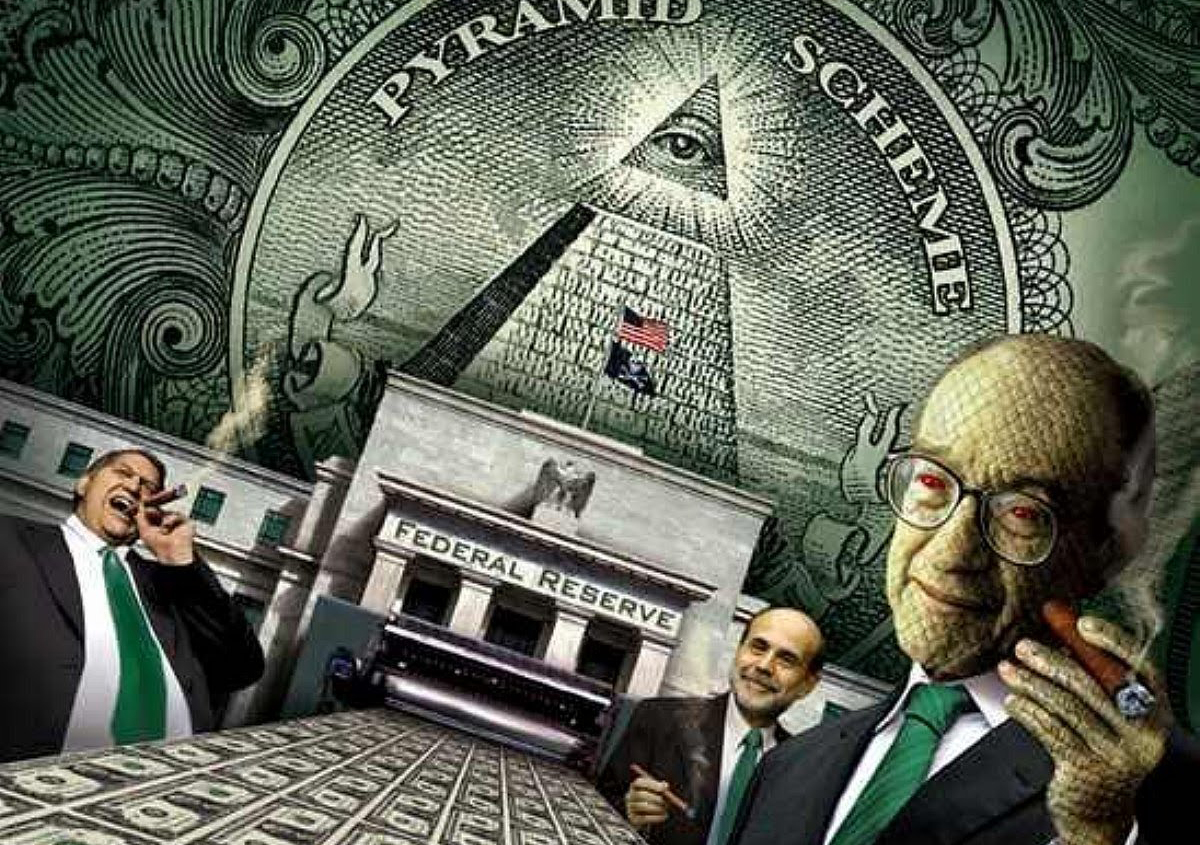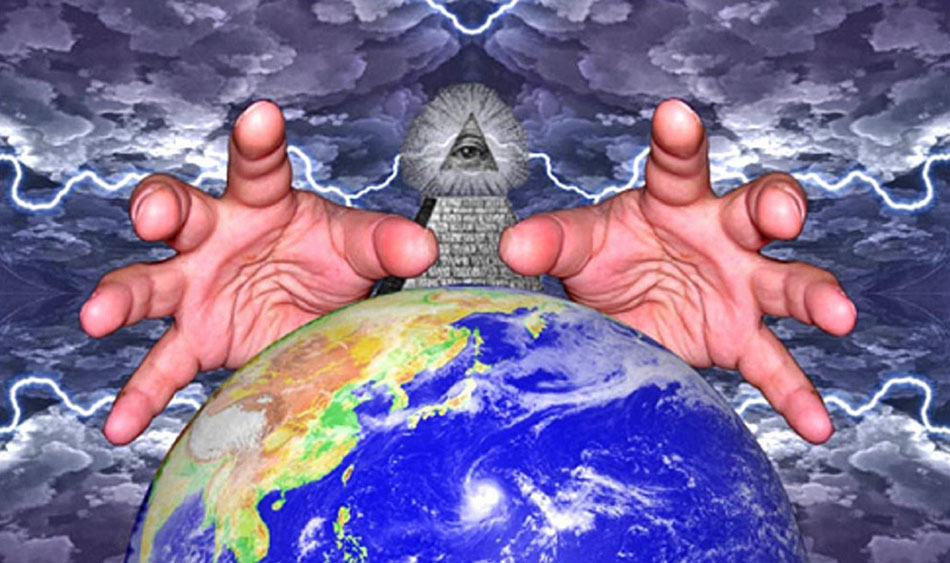
On October 6, the finance ministers, central bankers and development ministers from 188 countries convened for the Annual Meeting of the World Bank and International Monetary Fund in Lima, Peru. The yearly gathering is one of the top scheduled events on the calendar of economic diplomats, bringing them together for private discussions, seminars and press conferences with journalists. And of course it's a big deal for the thousands of private bankers and financiers who are there to cut deals with the chief financial policymakers in those 188 IMF-member nations.
It was ironic that this year’s meeting took place in Peru at a time when emerging market economies are experiencing increased economic problems: the result of a combined slow-down in economic growth in China, a collapse in commodity prices, and threats by the U.S. Federal Reserve to hike interest rates in the near future. Indeed, talk of China, interest rate hikes and emerging market crisis was plentiful in Peru. Central bankers, unsurprisingly, came out generally in favor of raising rates, with top monetary officials from emerging markets saying they more feared the uncertainty about when rates would rise than the rise itself, and urged the Fed to simply get on with it.
Global Pow Wow
The annual meetings bring together the Board of Governors of the IMF, made up of the central bankers or finance ministers from the Fund’s 188 member nations. But the Governors are given their marching orders from the 24-member International Monetary and Financial Committee (IMFC), made up of ministers and central bank governors from the 24 major constituencies represented on the IMF’s Executive Board, and whose membership largely reflects that of the Group of Twenty (G20).
The IMFC held their meeting in Lima on Oct. 9, presided over by the committee’s chairman, Agustin Carstens, the Governor of the Central Bank of Mexico, and the IMF Managing Director Christine Lagarde. In attendance were the finance ministers of Japan (Taro Aso), India (Arun Jaitley), Argentina (Axel Kicillof), Brazil (Joaquim Levy), France (Michel Sapin), Italy (Pier Carlo Padoan), Germany (Wolfgang Schauble), Singapore (Tharman Shanmugaratnam), Great Britain (George Osborne) and the United States (Jack Lew), along with top-level central bankers from Saudi Arabia, Nigeria, Norway, Algeria, Colombia, Belgium and China.
Also participating in the IMFC meeting were Mark Carney, Governor of the Bank of England and Chairman of the Financial Stability Board (FSB); Jaime Caruana, General Manager of the Bank for International Settlements (BIS); Valdis Dombrovskis, Vice President of the European Commission; Angel Gurria, Secretary-General of the Organization for Economic Cooperation and Development; Mario Draghi, President of the European Central Bank (ECB), and other top representatives from OPEC, the World Bank and the World Trade Organization (WTO).
These various financial diplomats met and made prepared statements, but the real work and decision-making took place in the IMFC’s off-the-record discussions. These discussions also included, as usual, a joint meeting between the IMFC and the G20, after which the G20 held a press conference discussing recent agreements made by the world’s top economic diplomats collectively representing roughly 85% of global GDP.
The meetings followed the consistent hierarchy of operations among the world’s most powerful economies, starting with a private gathering of the finance ministers and central bankers from the Group of Seven (G7) nations, including the U.S., Germany, Japan, UK, France, Italy and Canada. This was followed by a gathering of ministers and monetary chiefs from the G20 nations (consisting of the G7 plus China, Brazil, Russia, India, South Africa, Argentina, Australia, Turkey, Saudi Arabia, Mexico, South Korea, Indonesia and the European Union). The heads of the world’s major international organizations also attended these meetings, functioning effectively as a steering committee for the global economy. The G20 then held a joint session with the IMFC, which functions as the steering committee of the IMF.
The IMFC’s communiqué following its meeting warned that global economic growth was “modest and uneven” with increased “uncertainty and financial market volatility.” Risks to the global economy “have increased,” it noted, in particular for emerging markets.
Apart from the IMFC and G20, a number of other important meetings took place on the sidelines of the annual gathering, many of which prominently featured bankers. One of the most important gatherings of global financiers was the Annual Membership Meeting of the Institute of International Finance (IIF), a consortium of roughly 500 global financial institutions including banks, asset managers, insurance companies, sovereign wealth funds, hedge funds, central banks, credit ratings agencies and development banks.
From Oct. 9-10, the world’s top bankers and financiers then held luncheons and private meetings with the world’s top economic policy-makers, who were also invited to attend or speak at the conference proceedings. The IIF’s opening ceremony was addressed by Peru’s President Ollanta Humala Tasso, and included guest speakers like the finance minister of Indonesia and central bankers from Thailand and Malaysia, as well as the top Swedish central banker, Stefan Ingves, who serves as chairman of the Basel Committee on Banking Supervision (BCBS) which is responsible for shaping and implementing global banking regulations known as Basel III.
On the second day of the IIF’s meeting, guest speakers included top officials from Brazil’s finance ministry, the World Bank, and a keynote address was delivered by the governor of Canada’s central bank, Stephen S. Poloz. The rest of the day included talks by finance ministers and central bankers from Colombia, Chile and Peru; a top official from the central bank of France; and an official from the Financial Stability Board (FSB), which is a group of global central banks, finance ministries and regulators responsible for managing stability of financial markets.
Another important gathering in Lima was the Group of Thirty (G30), presided over by its Chairman Jean-Claude Trichet, the former President of the European Central Bank. The G30 was established in 1978 as a nonprofit group of roughly 30 sitting and former central bankers, finance ministers, economists and private bankers, with the aim "to deepen understanding of international economic and financial issues” and “to examine the choices available to market practitioners and policymakers.”
Among the G30's current members are former Federal Reserve Chair Paul Volcker; Mark Carney of the Bank of England and Financial Stability Board; Jaime Caruana of the BIS; Mario Draghi of the ECB; William C. Dudley of the Federal Reserve Bank of New York; former U.S. Treasury Secretary Timothy Geithner; former Bank of England Governor Mervyn King; economist Paul Krugman; Bank of Japan Governor Haruhiko Kuroda; Bank of France Governor and BIS Chairman Christian Noyer; Reserve Bank of India Governor Raghuram Rajan; Tharman Shanmugaratnam of Singapore; former U.S. Treasury Secretary Lawrence Summers; Chinese central banker Zhou Xiaochuan; and top bankers from UBS, JPMorgan Chase, BlackRock and Goldman Sachs.
This year, the G30 held its annual International Banking Seminar in Peru, “an invitation-only, off-the-record forum that allows for frank discussion and debate of the thorniest issues confronting the central banking community,” bringing together “over fifty percent of the world’s central bank governors, the Chairmen and CEOs of the financial sector, and a select few academics to debate financial and systemic issues of global import.”
The meeting included a short speech by Federal Reserve Vice Chairman Stanley Fischer, who told the audience that the Fed’s interest rate rise was “an expectation, not a commitment.” Fischer acknowledged that “shifting expectations concerning U.S. interest rates could lead to more volatility in financial markets and the value of the dollar, intensifying spillovers to other economies, including emerging market economies.” He reassured his audience, however, that the Fed will “remain committed to communicating our intentions as clearly as possible... to assist market participants, be they in the private or the public sector, in understanding our intentions as they make their investment decisions."
Behind Closed Doors
But the true importance of the annual IMF meetings is not what happens in formal proceedings and seminars, but the various secret meetings of finance ministers, central bankers and private financiers that take place on the sidelines of the official conference. In these closed-door events, a select group of government and monetary officials, primarily those from the G7 and G20 nations, were invited to wine and dine with bankers at decadent dinners and lavish parties, and speak to private gatherings of the world’s top investors and money managers. It's here, in these various meetings, where the world’s chief financial diplomats were able to meet, greet and receive praise or criticism from their true constituents: the global financial elite.
As usual, the annual pow wow of the global plutocracy came and went with little comment outside the financial press. But as always, the annual IMF meetings – and the more secretive, simultaneous gatherings of global economic diplomats and financiers on the sidelines – represented the core of global economic governance, manifest in the various ad-hoc committees that in essence rule the world.
These individuals' main interactions were not with the populations in their home nations – the people who suffer under austerity, who have to "adjust" to the restructuring of their societies into "market economies" – but rather with those from whom they have the most to gain: bankers, billionaires and financiers. And rest assured, when the officials retire from their central bank and finance ministry positions, they will be stepping out of their membership in the G7, G20 and IMFC, and into the boardrooms of JPMorgan Chase, Goldman Sachs, BlackRock, Barclays and Deutsche Bank. They will be well rewarded, with large salaries and bonuses for a job well done while in public office. And the revolving door of global economic governance will keep turning.
3 WAYS TO SHOW YOUR SUPPORT
- Log in to post comments
















